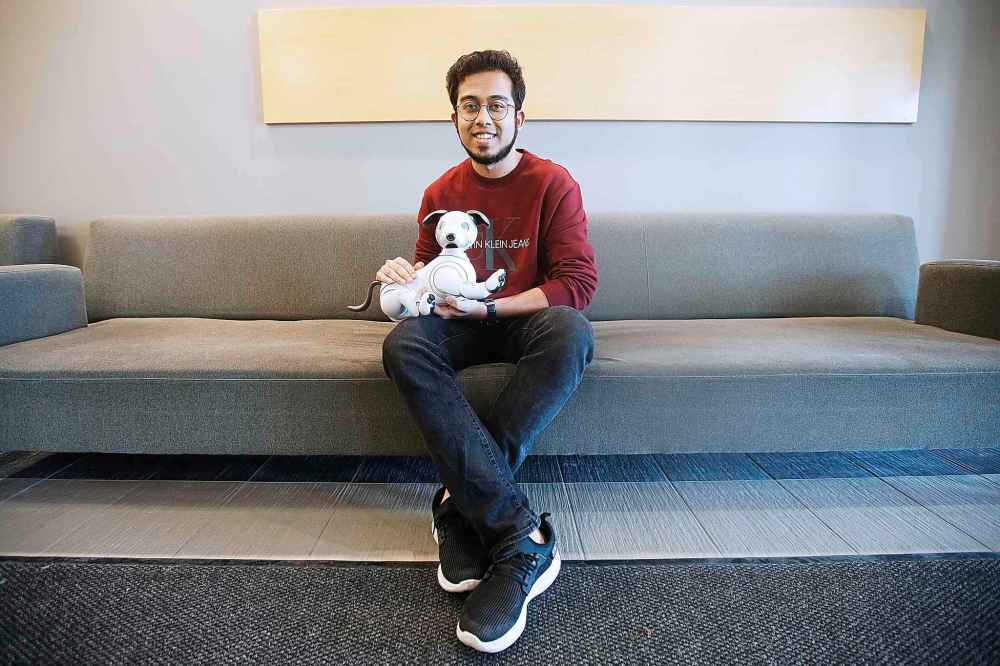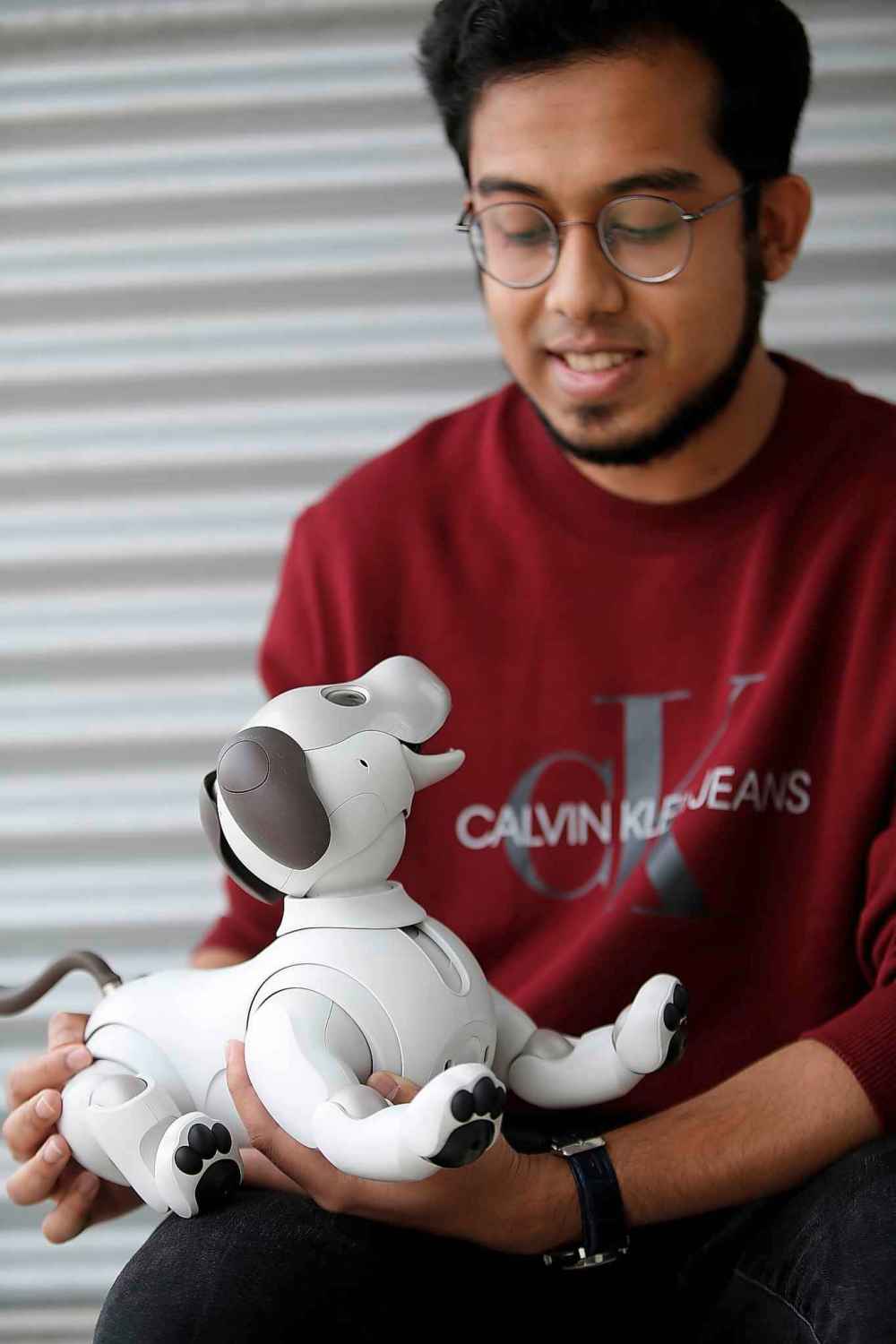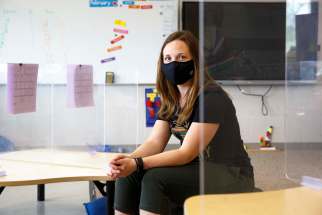Paws-itive roommate experience? U of M study examining effects of robots on human mental health
Read this article for free:
or
Already have an account? Log in here »
To continue reading, please subscribe:
Monthly Digital Subscription
$0 for the first 4 weeks*
- Enjoy unlimited reading on winnipegfreepress.com
- Read the E-Edition, our digital replica newspaper
- Access News Break, our award-winning app
- Play interactive puzzles
*No charge for 4 weeks then price increases to the regular rate of $19.00 plus GST every four weeks. Offer available to new and qualified returning subscribers only. Cancel any time.
Monthly Digital Subscription
$4.75/week*
- Enjoy unlimited reading on winnipegfreepress.com
- Read the E-Edition, our digital replica newspaper
- Access News Break, our award-winning app
- Play interactive puzzles
*Billed as $19 plus GST every four weeks. Cancel any time.
To continue reading, please subscribe:
Add Free Press access to your Brandon Sun subscription for only an additional
$1 for the first 4 weeks*
*Your next subscription payment will increase by $1.00 and you will be charged $16.99 plus GST for four weeks. After four weeks, your payment will increase to $23.99 plus GST every four weeks.
Read unlimited articles for free today:
or
Already have an account? Log in here »
Hey there, time traveller!
This article was published 19/05/2021 (1666 days ago), so information in it may no longer be current.
Can robots curb human loneliness and boost mental health?
A team of Winnipeg researchers is hoping to find out.
A 10-week study from the University of Manitoba’s human computer interactions lab will look at the impact of a social robot on a person’s mental health.
The study will use people living alone who self-identify as lonely but have not been diagnosed with a serious mental health condition such as depression or anxiety.
Participants will live with a robot dog for eight weeks, while completing questionnaires and conducting interviews with researchers about the experience and its impact on their mental health.

Computer science master’s degree student Rahatul Ananto, who is working on the study with U of M computer science Prof. James Young, said he hopes evidence will show the robot is a suitable replacement for a pet.
“There are patients who are older adults who don’t have the ability to get pets and be responsible for pets. If they get a social robot that works and can be there for them like a pet, that might be helpful for them,” he said.
“We still don’t have enough research data, we’re just trying to figure out how people would accept social robots, and how they’d interact with it.”
While only one robot canine is currently available, 50 are expected to be sent to participants in the next year.
“There are patients who are older adults who don’t have the ability to get pets and be responsible for pets. If they get a social robot that works and can be there for them like a pet, that might be helpful for them.”
– Rahatul Ananto
Ananto said the robot can understand basic English and Japanese, learn simple commands, recognize faces and follow around its owner. It will scale your living space and travel on its own volition. Despite being built to provide a pet-like experience, the robot can also sing, do a simple dance and will cry if it “feels” lonely without you.
Ananto said the team currently has enough applicants, although he didn’t say how many, but is hoping to secure more funding to eventually expand the study.

The U of M’s human computer interactions lab is working on a number of robotics projects meant to improve the emotional state of humans.
A snuggling robot is being designed to detect loneliness and comfort. A conversational robot that could talk to humans is also in the works.
“We are trying to figure out if these are capable of helping people with their mental health issues and general wellness, that’s our priority,” Ananto said.
The social robotics industry in “flourishing,” Ananto said, and COVID-19 has only amplified the urgency of the work for some researchers.
Paro, a therapeutic robotic baby seal created in Japan, is used as a form of therapy for patients with Alzheimer’s disease and other severe illnesses. Some doctors have used the robots during the pandemic to comfort older patients forced to isolate.

Ananto said he hopes social robots will one day become the norm at home.
“…Because of the pandemic, people are staying isolated from their families, they can’t go anywhere, they’re staying in their homes,” he said. “So right now, people are getting lonelier more than ever before… if they have a social robot, be it a humanoid robot or a pet-type robot, these might be helpful for them.”
malak.abas@freepress.mb.ca
Twitter: malakabas_

Our newsroom depends on a growing audience of readers to power our journalism. If you are not a paid reader, please consider becoming a subscriber.
Our newsroom depends on its audience of readers to power our journalism. Thank you for your support.
History
Updated on Wednesday, May 19, 2021 7:28 PM CDT: Updates story adding detail of robotic dog, updates headline.







